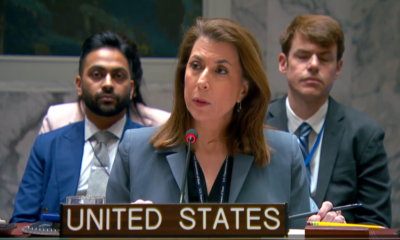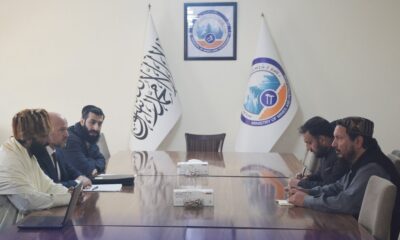Latest News
Experts fear brain drain may drag Afghanistan’s recovery
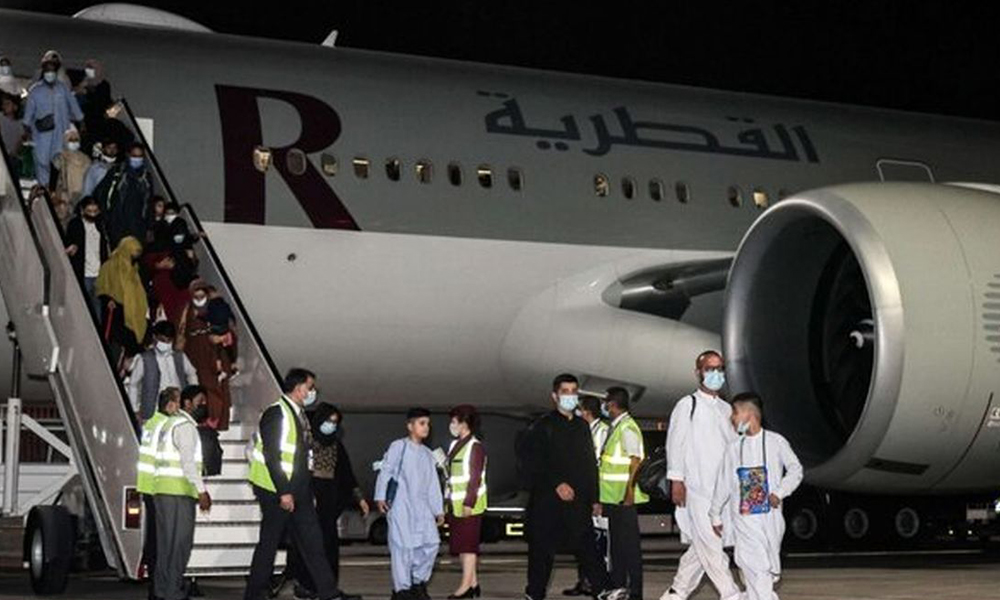
Following the U.S. pullout from Afghanistan, brain drain is posing a serious threat to the restoration of normalcy in the war-torn country and experts fear that the talent drain can affect the Islamic Emirate of Afghanistan (IEA)’s ability to rule.
Thousands of skilled and educated people have left or are leaving the country due to an uncertain future. Many of whom are reportedly qualified professionals from civil servants to lawyers, IT experts and health professionals.
But there are still some who have stayed behind, who say they want to help the IEA rebuild the country.
While many feel they don’t have much of a future in the country, some, including Issa Omid, a professor at a local institution, believes that all is not lost, and that even though he had the opportunity to leave the country, he chose to stay.
“I’m here, and like me there are a lot of people and they are very keen and are very hopeful about their future, and this is our country, and we have to build our country, it is our responsibility,” said Omid, principal of the Star Education Society.
IEA leaders have in turn called on educated Afghans to stay on and help rebuild the country.
“We will take steps so that they are not intimidated. We will create opportunities for those who will return. I once again call upon all the Afghans around the world who are experts in their fields to come back. They should come back to rebuild their homeland with their talent, it is their home,” said Zabiullah Mujahid, a IEA spokesman.
“This is the time I think if the Islamic Emirate wants to stabilize Afghanistan, wants to remove all those problems that make casualties for Afghanistan, they need to bring change to their behavior, and their day-to-day actions. At this time I don’t think we can rule by force, we need to rule in the heart of the people,” said Muhammad Reza Ibrahim, the vice chancellor of Bamiyan University.
Latest News
UNHCR delegation meets Afghan ambassador in Islamabad to discuss refugee support
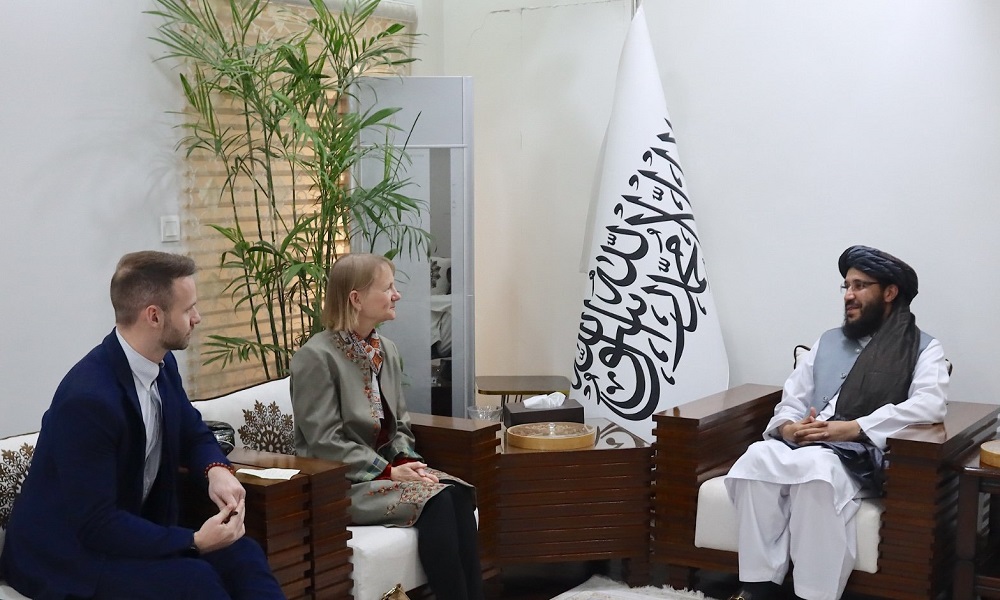
A UNHCR delegation led by Filippa Candler, Head of UNHCR in Afghanistan, met with Sardar Ahmad Shakeeb, Ambassador of the Islamic Emirate of Afghanistan to Pakistan, to discuss ongoing humanitarian assistance and challenges faced by Afghan refugees in Pakistan.
The meeting, which also included Charlie Goodlake, Senior External Relations Officer for the UNHCR Commission in Afghanistan, focused on the plight of remaining Afghan refugees, students, and other Afghan nationals living in Pakistan.
Ambassador Shakeeb welcomed the delegation and praised UNHCR for closely monitoring refugees’ living conditions and communicating their situation to the international community. However, he noted that the assistance provided so far remains insufficient.
“Although the support is limited, it is commendable that UNHCR continues to highlight refugees’ hardships,” Shakeeb said during the meeting.
Candler acknowledged the constraints, stating that despite financial limitations, UNHCR remains committed to providing the maximum possible assistance to Afghan refugees.
Goodlake provided an update on UNHCR’s support for returnees, saying the organization delivered approximately $25 million in assistance to refugees returning from Pakistan and Iran in 2025. He confirmed that UNHCR’s support would continue in coordination with the Afghan government.
The meeting concluded with both parties agreeing to continue cooperation and strengthen coordination on refugee and returnee support.
Latest News
Afghan and Turkish ambassadors discuss expansion of bilateral relations

Gul Hasan Hasan, the Ambassador of the Islamic Emirate of Afghanistan in Moscow, met with Tanju Bilgic, the Ambassador of Turkey, to discuss strengthening and expanding political, economic, and cultural relations between Kabul and Ankara.
In a statement issued by the Afghan Embassy in Moscow on Friday, the meeting also expressed appreciation for Turkey’s balanced policy toward the Islamic Emirate, based on mutual respect.
Both sides emphasized the need to facilitate visa issuance for Afghan traders and patients by Turkey and to further strengthen comprehensive cooperation between the two countries.
Latest News
US accuses IEA of ‘hostage diplomacy’ at UN Security Council meeting
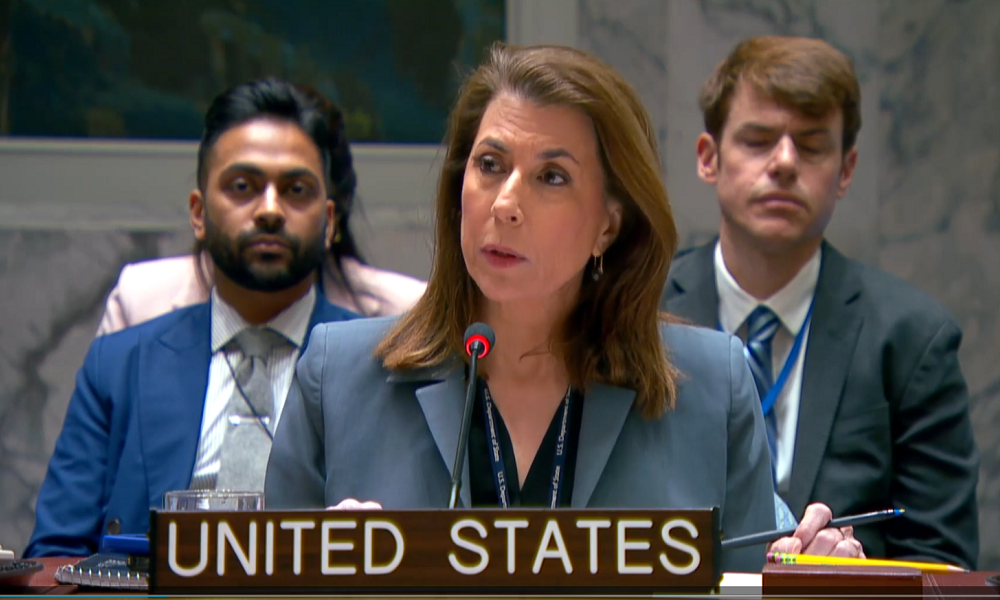
At the United Nations Security Council session renewing the 1988 sanctions mandate, US deputy representative, Tammy Bruce, said on Thursday that the Monitoring Team remains vital for assessing security and human rights conditions in Afghanistan.
She said the team’s reports provide key insights into the Islamic Emirate’s counterterrorism efforts and its human rights record, especially regarding women and girls.
Bruce accused the IEA of continuing “hostage diplomacy,” noting they have sought the release of an al-Qaida operative held at Guantanamo Bay detention camp in exchange for detained American citizens.
“The Taliban (IEA) must end all forms of hostage-taking and wrongful detentions,” she said. “The UN 1988 sanctions regime and its Monitoring Team remain critical tools for the international community to hold the Taliban accountable, including for these deplorable tactics.”
China’s envoy, Fu Cong, welcomed the Monitoring Team’s recent visit to Afghanistan and encouraged its experts to maintain engagement with and dialogue with the Afghan government.
“We urge the Afghan government to earnestly fulfil its counterterrorism responsibilities and take more resolute and effective measures to completely eradicate all terrorist forces in the country, including Daesh, al Qaeda, ETIM and TTP,” he said.
The envoy called for travel ban exemptions for Islamic Emirate officials to facilitate their international engagement.
Russian deputy representative, Anna Evstigneeva, said that attempts to shift the focus from key issues related to combating terrorism and narcotics trafficking to the human rights situation in Afghanistan are counterproductive and will undermine the effective implementation by experts of their tasks.
-

 Sport4 days ago
Sport4 days agoChampions League Elite action continues as qualification race tightens
-

 International Sports3 days ago
International Sports3 days agoIPL 2026: Franchise sales gather pace as global investors circle teams
-

 Sport4 days ago
Sport4 days agoEarly medal leaders emerge as Winter Olympics continue in Italy
-

 Latest News4 days ago
Latest News4 days agoTerrorist activities observed along Afghanistan borders, says Lavrov
-

 World5 days ago
World5 days agoHong Kong tycoon Jimmy Lai sentenced to 20 years in jail in national security trial
-

 Latest News4 days ago
Latest News4 days agoPakistan president claims situation in Afghanistan is ‘similar to or worse than pre-9/11’’
-

 Business3 days ago
Business3 days agoUzbekistan approves feasibility study agreement for Trans-Afghan Railway
-

 Latest News4 days ago
Latest News4 days agoFazlur Rehman: Afghanistan’s economic situation is better than Pakistan’s






